Complete Waterproofing Solutions for Homes & Buildings
CONTACT US FOR THE BEST WATERPROOFING SERVICES
Welcome KK BUILDTECH Waterproofing Company
Number One Waterproofing Company
KK Buildtech is one of the best waterproofing in Delhi NCR. we deal in all kinds of waterproofing Like Chemical waterproofing, Guniting, Kota, etc. We are one of the best waterproofing contractors in the market with 30 years in the field. We are a team of qualified Civil Engineers, Supervisors and applicators working in this field for more than thirty years satisfactorily.
- Call Us Today

Get Your Free Site Inspection
KK Buildtech Provides Free Site Inspections. Contact Us Now
Our Services
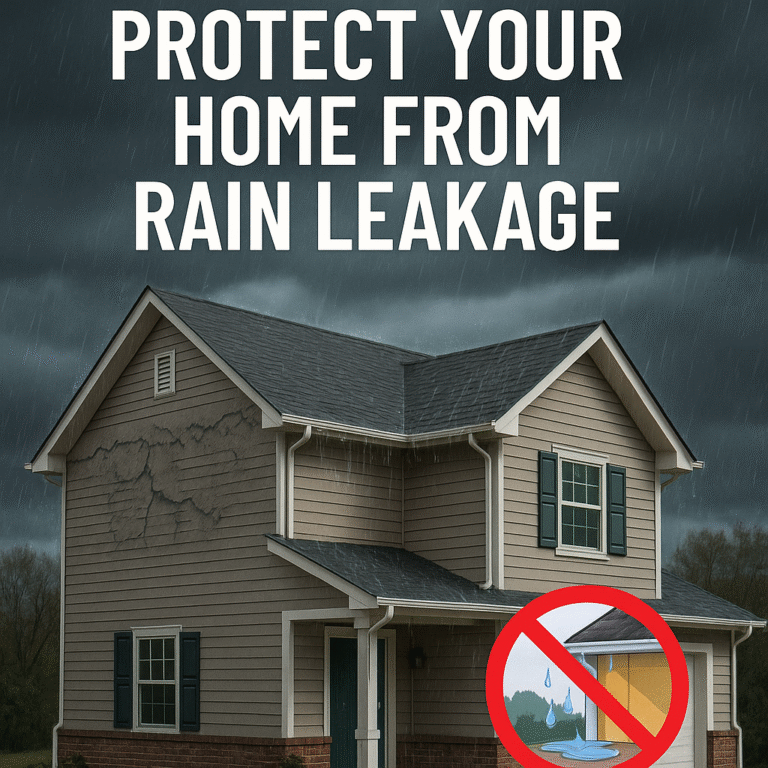
All Kinds of waterproofing
Roof waterproofing, Bathroom Waterproofing, Swimming Pool waterproofing, Basement waterproofing, etc
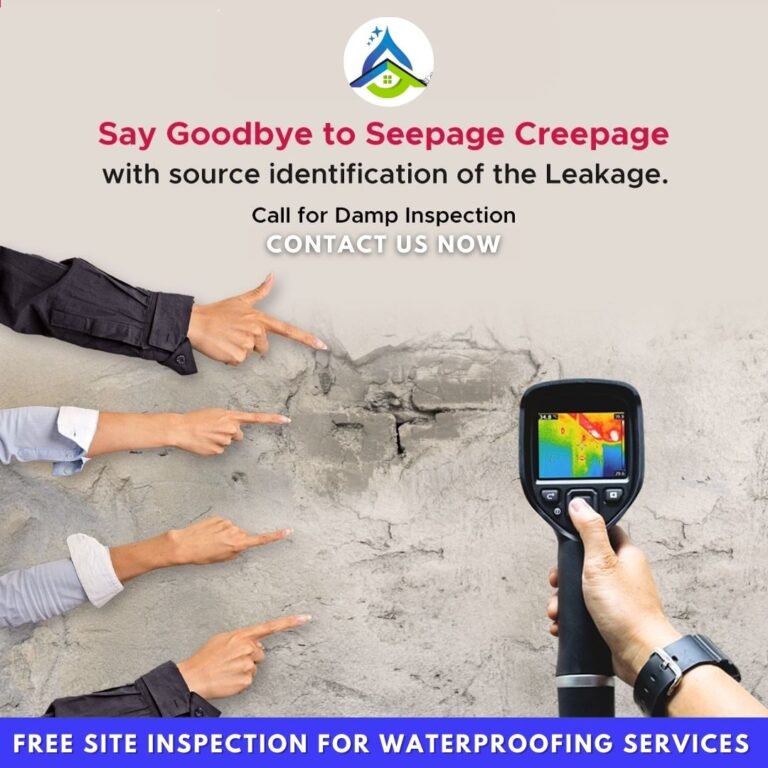
thermal scanning for water leakage
We provide thermal scanning for water leakage services, which helps to find the water leakage source. After finding the source of the leakage, we will make sure to provide a solution.

Our Specialization
KK Buildtech have many Specialization are:
Site Planning
Prepare plan after the site visit.
Best workers
We have best experince workers in our work.
Civil Engineers
They work professionaly in their work.
10 Year warranty
We gives 10 year warranty to our Happy customers.
Free Site visit
We gives free site visit to our happy customers
24/7 Call support
We Provides 24/7 call support to our customers.
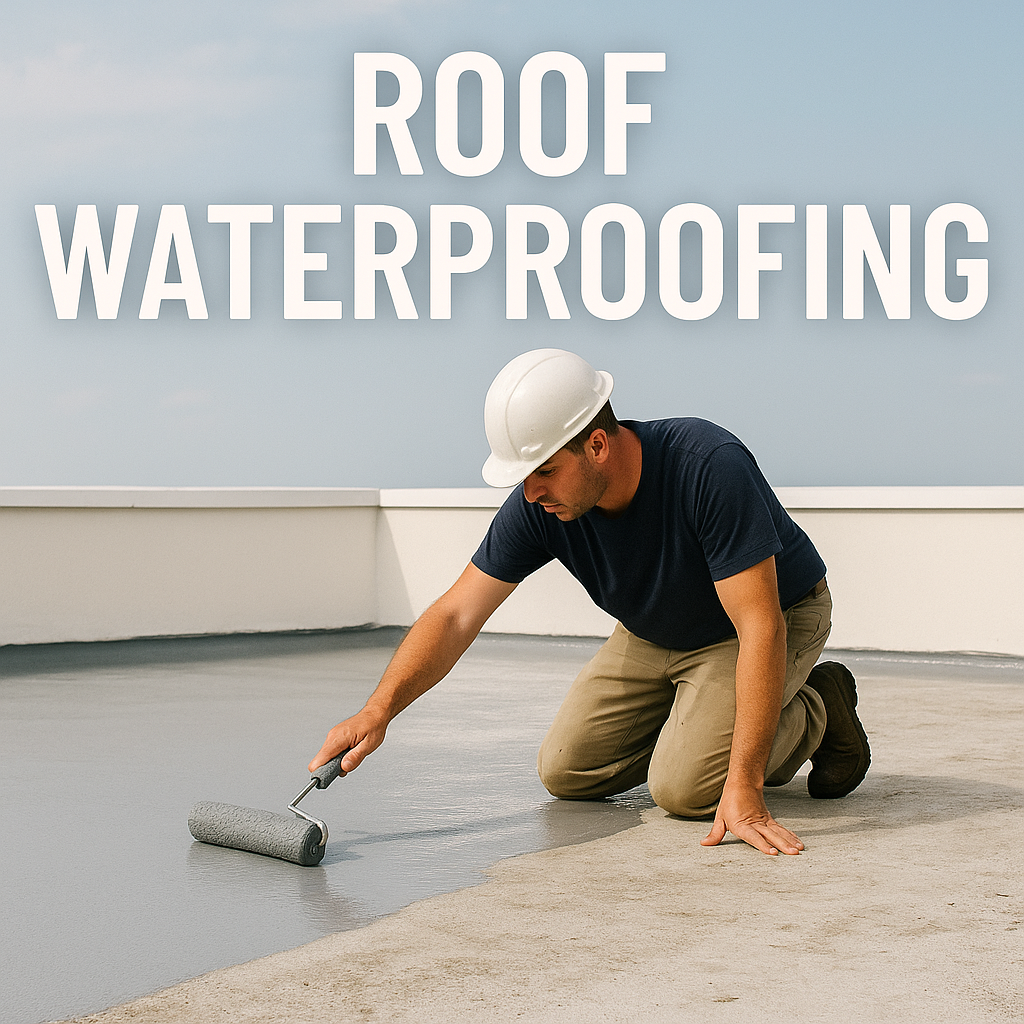
Roof waterproofing
We provide you Best Roof waterproofing services and solutions. Call Now for a Free Site Inspection.
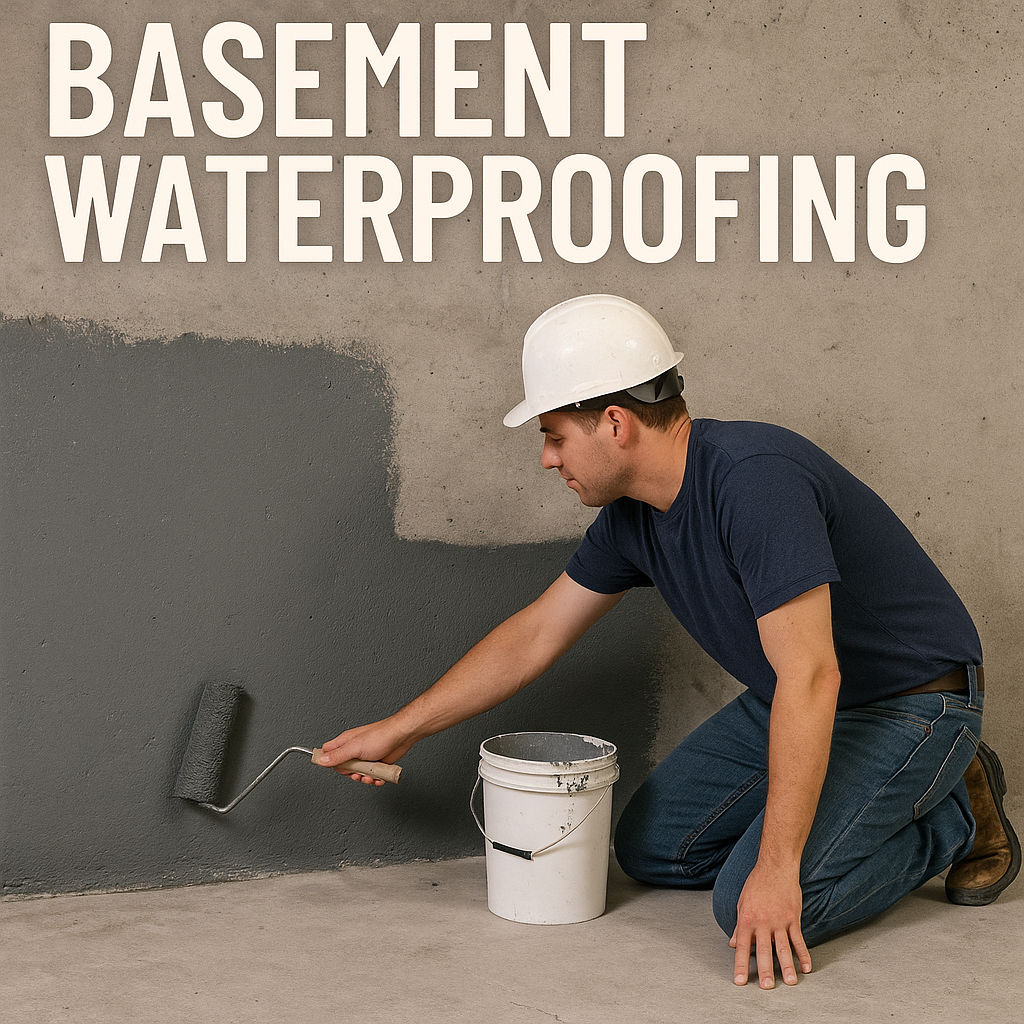
Basement Waterproofing
We Provide You with unbeatable waterproofing service and solutions. Call Now for a free site visit.
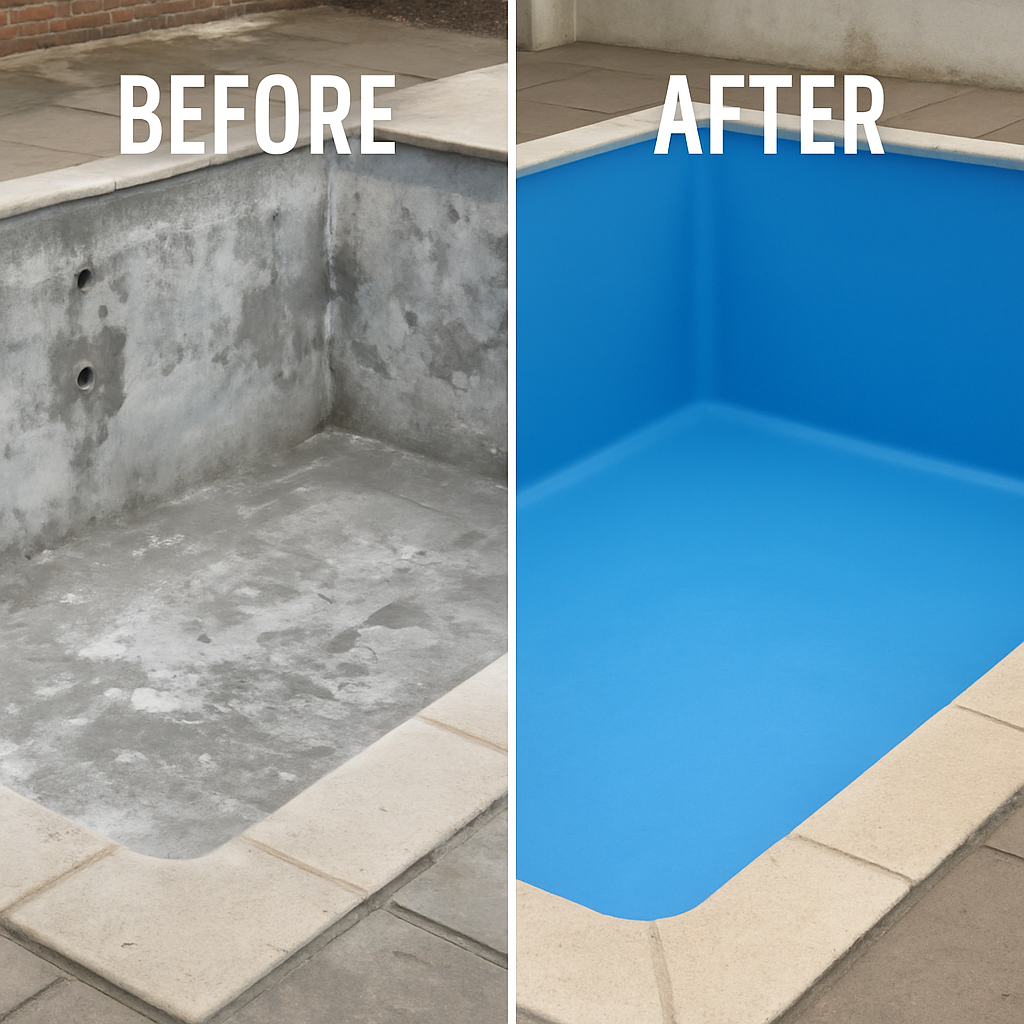
Swimming Pool waterproofing
We provide you Best Swimming waterproofing services and solutions. Call Now for a Free Site Inspection.
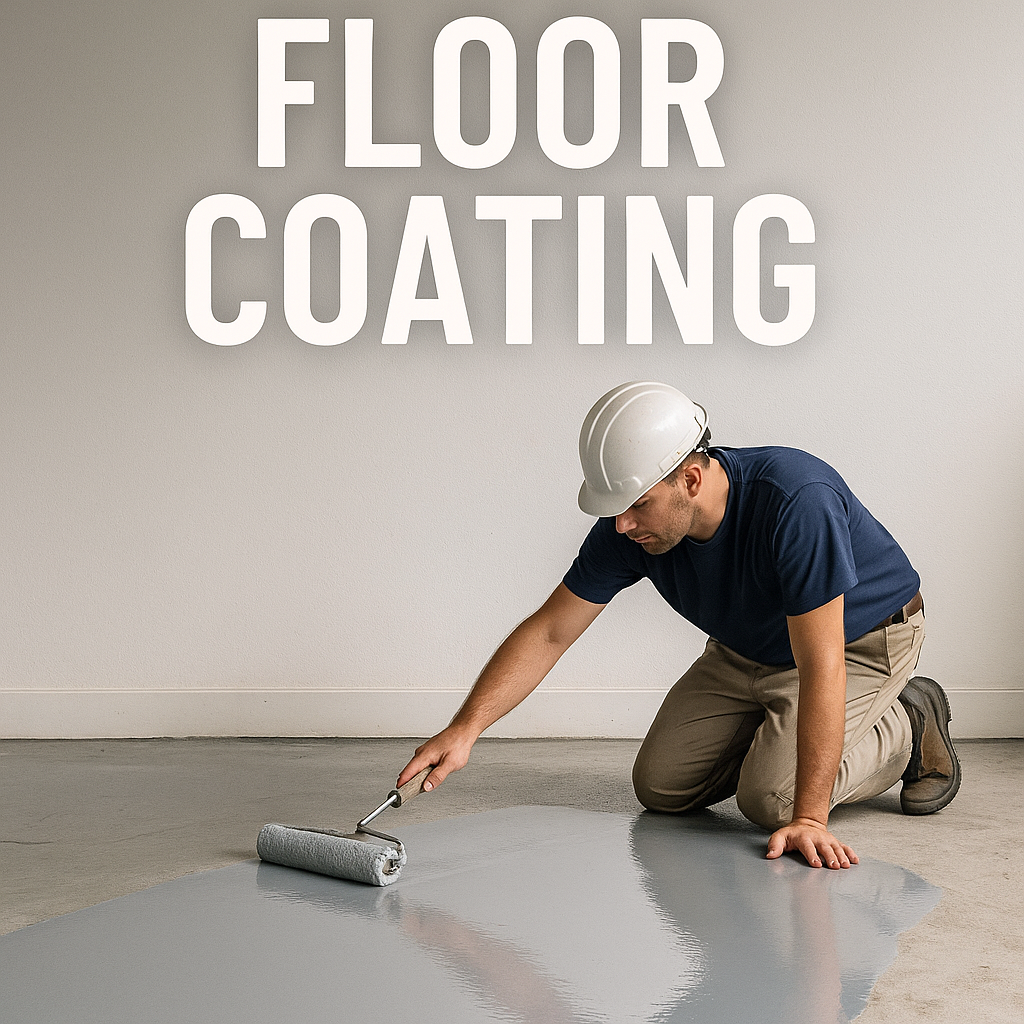
Floor coating
We provide all kinds of Floor Coating. Example: epoxy floor coating, other coating.
What Our Clients Say
Our Clients review After waterproofing services



Our Recent Projects
Mahagun Mezzaria Project
High Tower Building Project
Saviour Park Building Project
Hotel Jukaso Project
Piccolo Early Learning Center Bahubali Project
DLF Mega Mall Project
Our Expert Team

Kapil Dev
Owner & founder

Kundan Kumar
Co. Founder & Civil Engineers

Kunal Kumar
Management
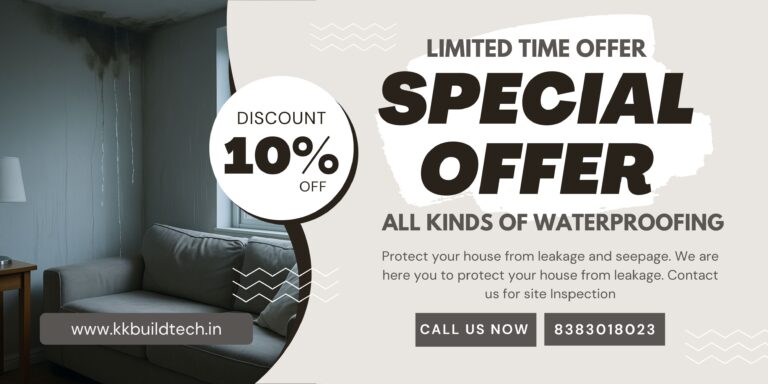
People also ask
The best type of waterproofing depends on various factors including the area that needs waterproofing, environmental conditions, the specific needs of the structure, and budget considerations. Here’s a brief overview of common waterproofing methods and their best applications:
Cementitious Waterproofing: Ideal for areas that are permanently wet, like bathrooms and kitchens. It’s easy to apply and relatively inexpensive, making it a popular choice for internal wet areas.
Liquid Waterproofing Membrane: Offers a more flexible approach, as it forms a rubbery coating on the applied area. It’s used on roofs, decks, and areas that require a seamless waterproof layer. Its flexibility makes it suitable for surfaces that might move or crack.
Bituminous Coating (Asphalt Coating): Works well for foundations and below-ground waterproofing. It’s a strong, durable option but requires proper application to avoid brittleness in cold environments unless it’s modified with polymers.
Bituminous Membrane: Typically used for low-sloped roofs, thanks to its excellent waterproofing properties. There are self-adhesive and torch-on versions, but it’s primarily effective in roofing applications.
Polyurethane Liquid Membrane: Highly suitable for flat roofs subjected to weathering and standing water. It offers high flexibility, making it ideal for areas where thermal contraction/expansion of the surface is a concern. However, it can be more expensive than other options.
Crystalline Waterproofing: This technology is used in concrete structures to protect against water penetration. It involves a chemical reaction that fills the spaces in concrete, making it waterproof. It’s often used in basements, foundations, and sewage and water treatment plants.
EPDM Rubber: A durable synthetic rubber roofing membrane primarily used in low-slope buildings. It’s known for its long-lasting properties and resistance to UV rays, temperatures, and weathering.
Choosing the best waterproofing method involves assessing the specific needs of your project, including exposure to weather elements, the type of substrate, and overall durability requirements. It’s often beneficial to consult with a waterproofing professional to determine the most effective and cost-efficient method for your particular situation.
The “best” method for waterproofing really depends on the specific requirements of your project, including the area you’re waterproofing, the materials involved, environmental conditions, and your budget. However, understanding the advantages and typical applications of each method can help you make a more informed decision:
Cementitious Waterproofing: Best for interior areas like bathrooms, kitchens, and basements where easy application and durability are key. It’s not flexible, which makes it less suitable for areas with potential for movement or cracking.
Liquid Waterproofing Membrane: Versatile and provides a seamless, flexible layer that can move with the structure to some extent. It’s excellent for roofs, balconies, and decks. The quality and longevity can vary based on the product type and application thickness.
Bituminous Coating: Ideal for concrete foundations and below-ground waterproofing due to its protective and waterproofing properties. Its effectiveness can diminish over time if exposed to sunlight unless it is modified with a flexible material like polyurethane.
Bituminous Membrane: Perfect for flat or low-slope roofs. The self-adhesive and torch-on versions offer solutions for different types of roofs, but application is more specialized and requires professional handling.
Polyurethane Liquid Membrane: Offers excellent flexibility and is highly suitable for areas exposed to weathering and standing water, such as flat roofs. It can be more costly but is effective for demanding applications where movement or differential settling may occur.
Crystalline Waterproofing: A chemical method that turns porous concrete into an impermeable barrier. It’s best for structures that need to be waterproof from the inside out, like basements, tunnels, and sewage plants. This method is integral to the concrete, offering permanent protection.
EPDM Rubber (Ethylene Propylene Diene Monomer): A synthetic rubber membrane widely used in commercial roofing. It’s highly durable, resistant to UV and ozone, and suitable for a wide range of temperatures, making it ideal for areas with extreme weather conditions.
To determine the “best” waterproofing method, consider factors such as:
- Location and Exposure: Outdoor vs. indoor, exposure to chemicals, soil, water.
- Surface Type and Condition: Concrete, wood, metal, existing coatings.
- Movement: If the structure or surface is expected to move or settle.
- Environmental Conditions: UV exposure, temperature extremes, moisture levels.
- Budget and Longevity Needs: Initial vs. long-term costs, maintenance requirements.
In many cases, a combination of methods might be necessary to fully protect a structure from water damage. Consulting with a waterproofing professional or company can provide insights tailored to your specific situation, ensuring you choose the most effective and efficient method for your needs.
Waterproofing refers to the process of making a structure or object water-resistant or impervious to water, ensuring that water does not penetrate or absorb into it under specified conditions. This can involve applying coatings, membranes, or other barrier systems to protect materials and structures from water damage, including mold, corrosion, and structural weakening due to water exposure.
The need for waterproofing is critical in many areas of construction and manufacturing, including:
- Buildings and Construction: To protect basements, roofs, walls, and other parts of buildings from water infiltration due to rain, groundwater, and moisture.
- Infrastructure: In bridges, tunnels, and dams, waterproofing is essential to maintain structural integrity and prevent damage.
- Consumer Products: Waterproofing is also used in the manufacture of clothing, electronics, and various consumer goods to protect against water damage.
Effective waterproofing involves not only preventing the passage of water but also managing water vapor and ensuring durability under the specific environmental conditions to which the structure or item is exposed. The selection of a waterproofing method and materials depends on several factors, including the nature of the substrate, the environmental conditions, the expected load of water, and the specific requirements for the space or item being waterproofed.
The choice of the best chemical for addressing water leakage depends on the source of the leak, the materials involved, and the specific conditions of the area needing treatment. However, some commonly used chemicals and materials are known for their effectiveness in stopping water leaks and providing waterproofing protection. Here are a few options:
1. Polyurethane Foam
- Usage: Ideal for sealing active water leaks in cracks, joints, and around pipes. Polyurethane foam expands upon contact with water, effectively blocking water flow and sealing the leak.
- Best for: Concrete structures, basements, and walls.
2. Epoxy Injection
- Usage: Epoxy resin is injected into cracks in concrete, where it hardens to form a strong, waterproof seal. This method is used for structural repair and waterproofing.
- Best for: Foundations, basements, and concrete walls with non-active leaks (the area must be dry for the epoxy to adhere properly).
3. Cementitious Waterproofing Compounds
- Usage: A mixture of cement, sand, and specific waterproofing additives that creates a slurry applied over surfaces to prevent water ingress.
- Best for: Internal areas like bathrooms, kitchens, and basements, especially in pre-construction or during major renovations.
4. Silicone Sealants
- Usage: Silicone-based sealants are used to waterproof joints, gaps, and cracks in various materials. They provide a flexible, waterproof barrier.
- Best for: Windows, door frames, and other joints in both interior and exterior applications.
5. Crystalline Waterproofing
- Usage: These are chemicals that, when added to concrete, form a crystalline structure inside the concrete to block water pathways.
- Best for: New concrete structures such as foundations, tunnels, and water treatment plants.
6. Acrylic Coatings
- Usage: Acrylic waterproof coatings can be applied over existing paint or directly on materials like concrete, wood, and metal. They form a waterproof, durable film on the surface.
- Best for: Roof repairs, external walls, and decks.
7. Bituminous (Asphalt) Coatings
- Usage: A type of coating made from bitumen-based materials, suitable for waterproofing and protecting various surfaces.
- Best for: Foundations, roofing, and under-tile waterproofing in wet areas.
8. Rubberized Asphalt
- Usage: Combines asphalt with polymers to create a flexible, waterproof membrane that can be applied in sheets or as a spray.
- Best for: Roofing, bridge decks, and around foundation walls.
When choosing a chemical for waterproofing or leak repair, it’s crucial to consider the specific requirements of your project, including the type of surface you’re working with, the environmental conditions, and the extent of the water leakage. Consulting with a waterproofing specialist or professional can also provide guidance on the best product and application method for your needs.
The best waterproofing method for walls depends on various factors, including the type of wall construction, the source of water penetration, environmental conditions, and budget considerations. Here are some commonly used waterproofing methods for walls:
Cementitious Waterproofing:
- Description: Cementitious waterproofing involves applying a cement-based coating to the wall surface. It forms a rigid, waterproof barrier when dry.
- Best for: Interior and exterior walls, especially those made of concrete, masonry, or brick. It’s commonly used in basements, retaining walls, and foundation walls.
- Advantages: Relatively inexpensive, easy to apply, and suitable for both new construction and renovation projects.
Liquid Waterproofing Membrane:
- Description: Liquid membrane waterproofing involves applying a flexible liquid membrane onto the wall surface. It forms a seamless, waterproof barrier that can accommodate slight movements and cracks.
- Best for: Exterior walls, particularly those exposed to weather elements like rain and UV radiation. It’s also suitable for interior walls in wet areas such as bathrooms and kitchens.
- Advantages: Provides excellent flexibility, durability, and resistance to UV radiation. It can conform to complex shapes and surfaces.
Bituminous Coatings:
- Description: Bituminous coatings consist of bitumen-based materials applied as a thick, waterproof layer onto the wall surface. It forms a durable, protective barrier against water penetration.
- Best for: Exterior walls, particularly those made of concrete or masonry. It’s commonly used in below-grade applications such as foundation walls and retaining walls.
- Advantages: Offers excellent waterproofing properties, resistance to water and moisture, and durability. It can withstand exposure to harsh weather conditions.
Crystalline Waterproofing:
- Description: Crystalline waterproofing involves applying chemicals that react with moisture in the concrete to form crystals within the capillary pores and micro-cracks. This process seals the concrete and makes it impermeable to water.
- Best for: Both new and existing concrete walls, especially those exposed to hydrostatic pressure or water infiltration.
- Advantages: Provides permanent waterproofing protection, as the crystalline formation continues to grow over time. It’s particularly effective in areas prone to high water pressure.
Exterior Insulation and Finish Systems (EIFS):
- Description: EIFS involves applying a multi-layered exterior wall system that includes insulation, a base coat, reinforcement mesh, and a finish coat. While not solely a waterproofing method, properly installed EIFS can provide effective moisture protection for walls.
- Best for: Exterior walls of residential and commercial buildings where both insulation and waterproofing are desired.
- Advantages: Offers thermal insulation, energy efficiency, and aesthetic versatility in addition to waterproofing properties.
The best waterproofing method for your wall will depend on factors such as the wall’s construction, the severity of water penetration, the desired level of protection, and budget constraints. Consulting with a waterproofing specialist or contractor can help determine the most suitable solution for your specific needs.
The 5-layer waterproofing system is a comprehensive approach designed to offer maximum protection against water penetration and damage, particularly in areas exposed to high levels of moisture or water. This multilayered system enhances the waterproofing effectiveness by combining different materials and methods, each layer serving a specific function in the overall waterproofing strategy. Here’s a breakdown of what each layer typically entails:
1. Primer Layer
- Purpose: To ensure proper adhesion of the waterproofing materials to the substrate.
- Application: Applied directly to the clean and prepared surface, the primer improves the bonding of subsequent layers and can help seal minor porosities.
2. Membrane Layer
- Purpose: Acts as the core waterproofing component, providing the primary barrier against water ingress.
- Application: This can be a liquid-applied membrane that forms a seamless, monolithic layer, or a sheet membrane that is rolled out and bonded to the surface. Materials used may include bituminous, polyurethane, or acrylic compounds.
3. Protection Board
- Purpose: To protect the membrane layer from physical damage during construction activities or from backfill in underground applications.
- Application: A rigid board or protection mat is installed over the membrane. Materials used for this layer can vary from extruded polystyrene (XPS) boards to drainage mats, depending on the application’s requirements.
4. Drainage Layer
- Purpose: To facilitate the removal of water that may accumulate on the membrane’s surface, thus preventing hydrostatic pressure buildup.
- Application: This layer can include drainage boards, channels, or mats that help direct water towards drainage outlets. It’s especially crucial in roofs and below-grade waterproofing where water can pool.
5. Finish Layer
- Purpose: To provide an aesthetically pleasing surface and additional protection against UV radiation, foot traffic, or other environmental factors.
- Application: This could be a layer of tiles, pavers, green roof systems, or a topcoat of durable paint, depending on the area’s use and exposure.
Implementing a 5-layer waterproofing system is particularly common in critical areas such as flat roofs, balconies, terraces, and below-grade structures like basements and foundations. Each layer complements the others to create a robust, durable waterproofing solution that can handle a wide range of environmental conditions and usage scenarios.
It’s important to note that the specific materials and techniques used can vary depending on the manufacturer’s systems, the project’s specific requirements, and the local climate conditions. Proper application by experienced professionals is crucial to the success of a 5-layer waterproofing system
